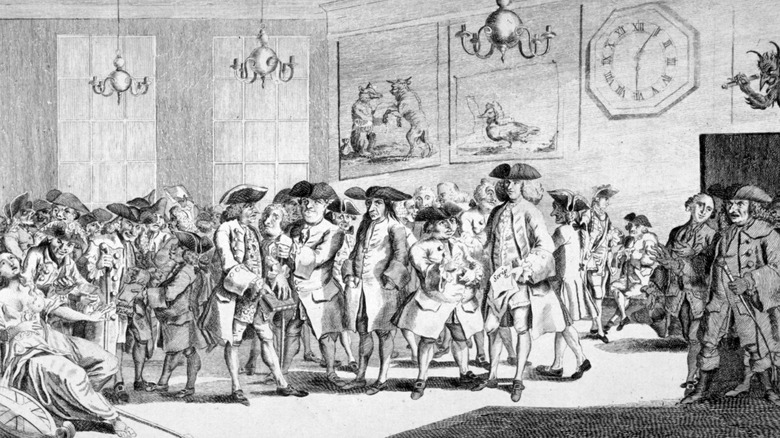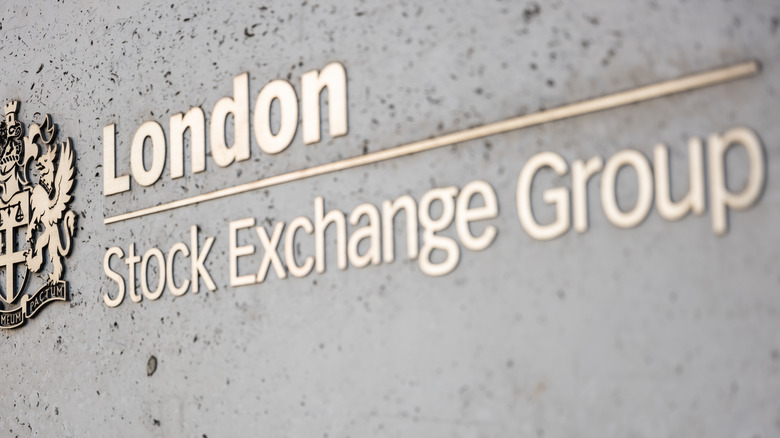How Coffee Changed British Finance Forever
Coffee has, without a doubt, left an indelible mark on history and economics. Not only is coffee the second most traded commodity in the entire world, but it has been the grounds for some rather gruesome historical oddities. For instance, according to History.com, 17th century Ottoman Sultan Murad IV decreed that drinkers of coffee would be killed, owing to his brother's and uncle's murders at the hands of caffeinated infantrymen. Coffee has been at the root of revolutions and discoveries through the ages — and has made its mark in the most lucrative industries, finance included.
High finance has a language all its own, and in all the coffee joints across the world, someone is having a conversation about money. Though money tends to bring on more stress than relaxation, having a conversation over coffee does the opposite. Coffee offers a next-to-no-pressure environment, far less imposing than a conversation over dinner, per Cafe Altura. Though relaxing wasn't exactly the nature of the conversations 18th century London stockbrokers had over their daily coffee. No, they were having conversations that would change the course of British finance forever.
The birth of the London Stock Exchange
In the 17th and 18th centuries, coffee houses in London earned something of a reputation as being locations for stimulating conversation. As History.com notes, a common nickname for coffee houses circulating at the time was the "penny university." The inspiration for the nickname came from the fact that one could go to a coffee house, spend next to no money for a cup, and gain access to some of the great ideas being explored and expounded. With the great number of coffee houses in London catering to numerous different types of clientele, the odds were that one of them was going to develop something transformational.
And that's exactly what happened at Jonathan's Coffee House in 1698, when stockbroker John Castaing posted a list of currency, stock, and commodity prices on the wall, including gold, silver, ducats, and pieces of eight. This was the beginning of the London Stock Exchange. Over the course of the next several hundred years, the LSE transformed from a casual group of brokers discussing stocks and trade prices to the full-blown, high-finance investment hub it is today. And it all started with a couple of heavily caffeinated stockbrokers. If they can form the London Stock Exchange over a cup of coffee, what might you be able to achieve?

